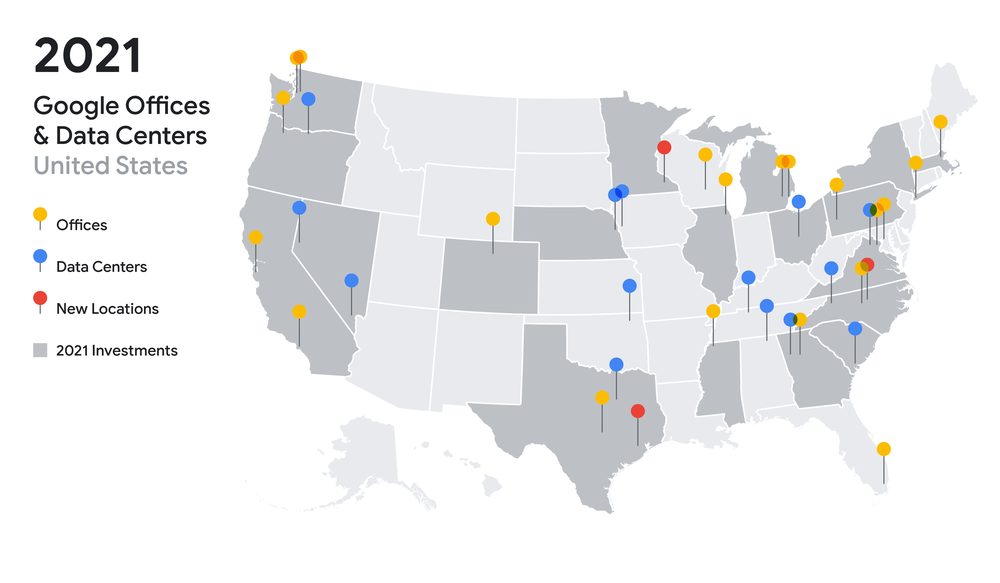Land
Google Maps $7 Billion Growth Spurt With 10,000 New Hires
Google's office, data center, and new locations roadmap for 2021 sparks a rush to follow the tech money to tech's new geography magnets.
To listen to Google and Alphabet ceo Sundar Pichai, empire building and local economic impact go hand in hand, like a veritable Google GDP.
This, of course means jobs, Google jobs, tech jobs that tend to stand out as higher paying, more secure, and – these days – more flexible. This, in itself, qualifies Google's office, data center, and "new locations" expansion plan as a treasure map for residential real estate investment and development.

One of the harder-working terms in the corporate vernacular these days is "impact." Here's ceo Pichai's high-level on company plans to invest over $7 billion in offices and data centers across the U.S. and create at least 10,000 new full-time Google jobs in the U.S. this year. Three new locations – in Minnesota, North Carolina, and Texas – will be new to Google, and facilities in 19 states will reflect an expanding footprint.
With all the fuss and unwelcome scrutiny Google and its tech giant peers are getting from Capitol Hill these days, Pichai is painting Google's manifest destiny expansion and local impact as good things for everybody.
Not only will these investments enable us to create new opportunities in the places where we operate; they’ll also make it possible to provide products and services that help boost economic recovery. In 2020, Google Search, Google Play, YouTube and Google advertising tools helped provide $426 billion of economic activity for more than 2 million American businesses, nonprofits, publishers, creators and developers, according to our 2020 U.S. Economic Impact Report, released today.


